Americans studying in China will continue to trend downwards
China-US political tensions have been a key reason for the sharp decline in people-to-people exchanges between the two countries, with study abroad programmes for US students to China halted and Confucius Institutes in the US closing down in droves. Some believe that China's domestic policies are also to blame for the drop in American students' interest. Lianhe Zaobao journalist Li Kang finds out more about the downward trend.
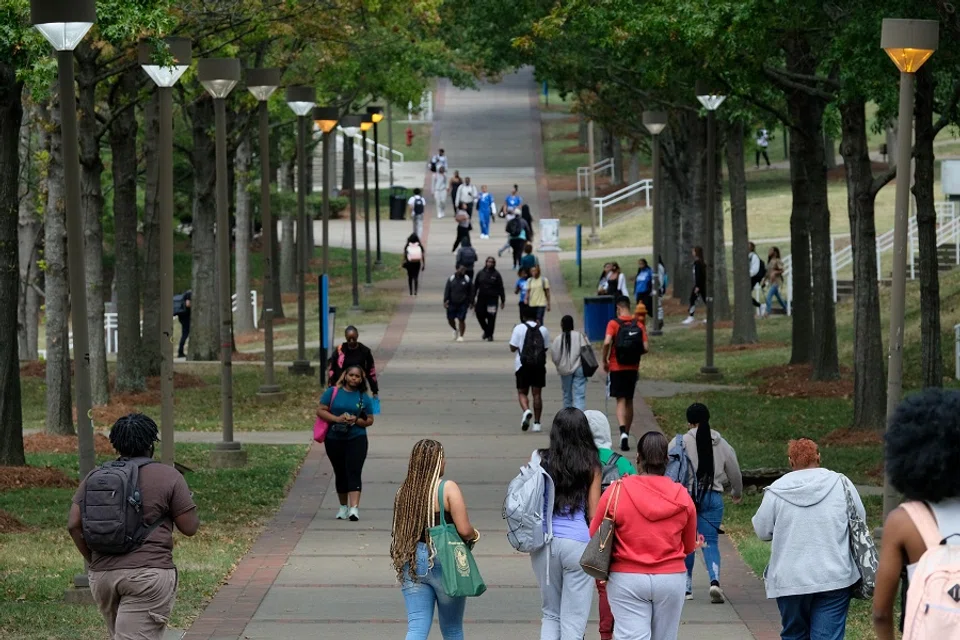
Chapin Mohney, an 18-year-old freshman from the University of Tennessee, always wanted to study in China. However, at a recent study abroad fair at his school, Mohney found that China was not one of the options this year.
Before the pandemic, Mohney's university offered opportunities to study in Shanghai. This year, this was changed to London. A chemical engineering major with a keen interest in China, Mohney told Lianhe Zaobao that he "can only wait and see if there's a chance next year".
US students in China still a rarity
Data from the US State Department's Bureau of Educational and Cultural Affairs shows that at the start of the pandemic, in the 2020/2021 academic year, the number of US university students who studied abroad for academic credit declined by more than 90%; in particular, the number of US students that went to China dropped by nearly 85%.
From 2014 to 2018, the average number of students visiting China was 11,000 per year, but that number dropped to 382 in the 2020/21 academic year and even further down to 211 in 2021/22.

In 2009 when China-US relations were relatively stable, then US President Barack Obama announced the "100,000 Strong Initiative", which aimed to send 100,000 US students to study in China by 2024. The Chinese government also pledged to offer 10,000 "Chinese Bridge" scholarships for US students in China.
Under the joint efforts of the Chinese and US governments, the number of US students in China increased slightly in the following years, but it never surpassed the 15,000 students mark, a far cry from the proposed 100,000 figure.
Since China lifted the pandemic measures, there have been more foreign students like Nick, but US students are still a rarity, even for short-term exchange students.
The three years of the pandemic, coupled with the strained relations between China and the US across the board, relegated academic exchange between the two countries to the backburner in recent years.
Nick, a 30-year-old doctoral student from the US at Tsinghua University in China, arrived in Beijing in November 2022. He believes that his student dormitory is not even at 50% occupancy. Since China lifted the pandemic measures, there have been more foreign students like Nick, but US students are still a rarity, even for short-term exchange students.
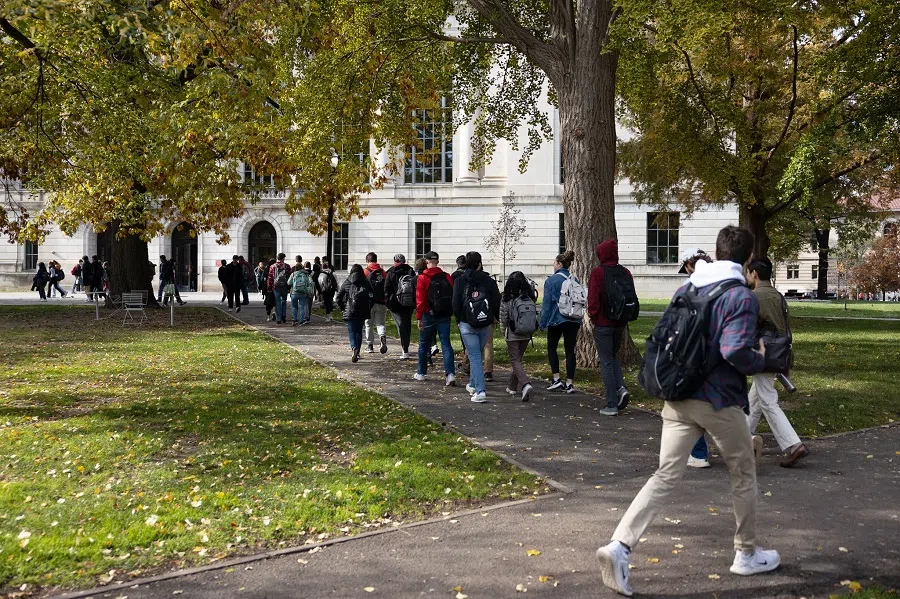
A decade ago, Nick first set foot in China because of a study abroad programme as an undergraduate and he began to learn Mandarin. Returning to China ten years later, he could sense a clear shift in the attitude of his teachers and peers towards Americans. Non-US foreigners in China even bluntly asked him: "You're American; what are you doing in China?"
Nick said, "A decade ago they certainly wouldn't ask that. But now, they feel that I shouldn't be here or don't even want to be here. Everyone thinks that all Americans do not like China."
... enrolment in Mandarin courses at American colleges fell nearly 26% from 61,997 in 2013 to 46,492 in 2021...
Declining interest in Mandarin
Along with the decline in the number of students heading to China, American interest in learning Mandarin has also taken a dip. Zou Lei (pseudonym), who lives in the US northeastern state of New Hampshire, told Lianhe Zaobao that her public school has cancelled all Mandarin classes since 2018.
Zou, who had taught Mandarin at a US online language learning platform for eight years, said that demand for online Mandarin classes has dropped considerably since 2018. The platform she worked at used to have contracts with some Chinese governmental organisations, but these were all discontinued in 2021.
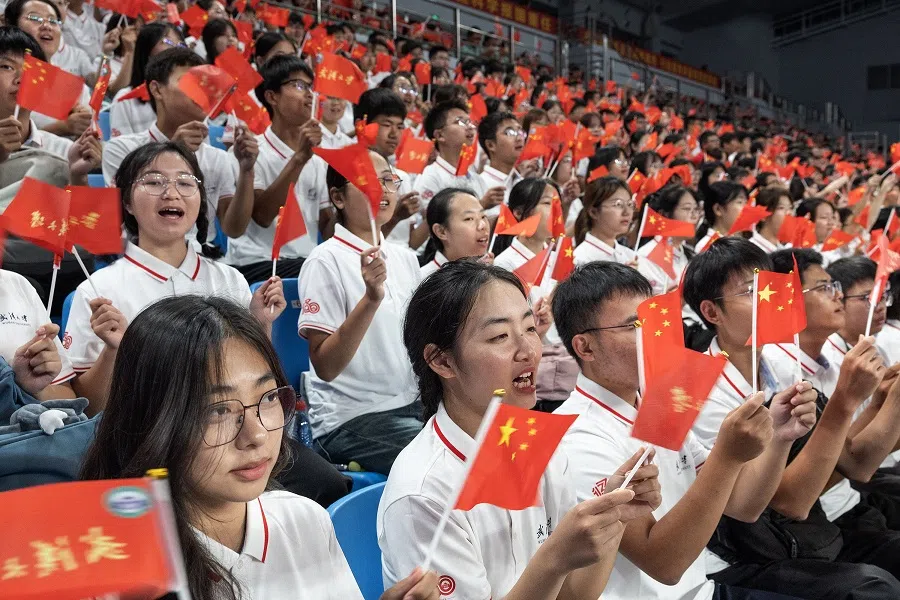
Some years ago, there was a wave of Mandarin learning in US society. Six years after his "100,000 Strong Initiative", Obama pushed for the "1 Million Strong" initiative in 2015, intending to have a million US students learn Mandarin by 2020, and develop a batch of "China experts" across all professions and sectors.
However, enrolment in Mandarin courses at American universities fell after peaking in 2013. Latest statistics released by the Modern Language Association on 15 November, surveying 2,455 higher education institutions in the US, showed that enrolment in Mandarin courses at American colleges fell nearly 26% from 61,997 in 2013 to 46,492 in 2021, which is even lower than the 51,382 reported in 2006.
Confucius Institutes, which offer Chinese language programmes on US college campuses, have also largely closed under pressure from US authorities and public opinion. Statistics from the National Association of Scholars found that as of June, 111 Confucius Institutes have closed or are in the process of closing, leaving just ten still in operation.
Affecting a generation of Americans' understanding of China
Regarding the falling number of American students in China and their declining interest in learning Chinese, Li Mingjiang, an associate professor at the Rajaratnam School of International Studies (RSIS) at Nanyang Technological University (NTU), attributed this to deteriorating China-US relations over the years, and felt that the trend would be stumbling block for restoring and improving bilateral relations.
... crux of the issue is China's domestic policies, especially the anti-Covid policy of the past few years that have made international students hesitant about studying in China. - Professor Zhang Jiadong, Center for American Studies, Fudan University
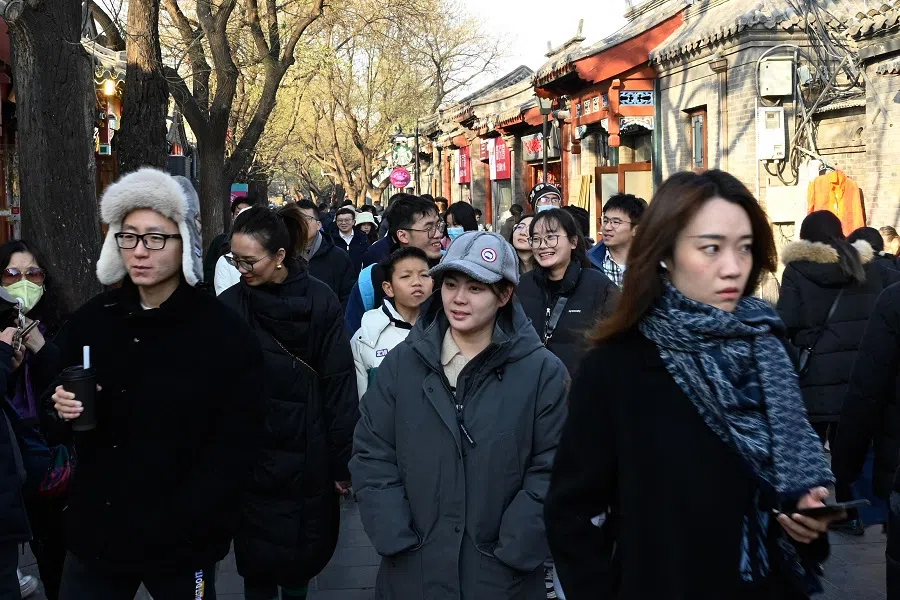
Should the situation persist for a few more years, Li believes that it would affect an entire generation of Americans' understanding of China and perpetuate misunderstanding and prejudice between the two countries.
Zhang Jiadong, a professor at the Center for American Studies at Fudan University, said that a decline in people-to-people exchanges, or even a trend towards decoupling, is "certainly bad news" for China-US relations in the long term.
However, he believes that while the falling number of American students in China is somewhat related to China-US relations, the crux of the issue is China's domestic policies, especially the anti-Covid policy of the past few years that have made international students hesitant about studying in China.
Zhang said that if China can introduce some practical measures to dispel foreign students' doubts, it would be "highly likely" that American students would return to China, albeit not in the same numbers as before.
Push from the leaders
When Chinese President Xi Jinping and US President Joe Biden met in San Francisco in mid-November, both sides agreed to promote people-to-people exchanges and reduce negative factors that hinder these exchanges, proposing to strengthen educational cooperation, and encourage and support greater interactions and communication between their people.
... a significant increase in the number of American students in China in the next few years is "unrealistic", as even a return to half the level in the pre-Trump era would be a challenge. - Associate Professor Li Mingjiang, RSIS, NTU
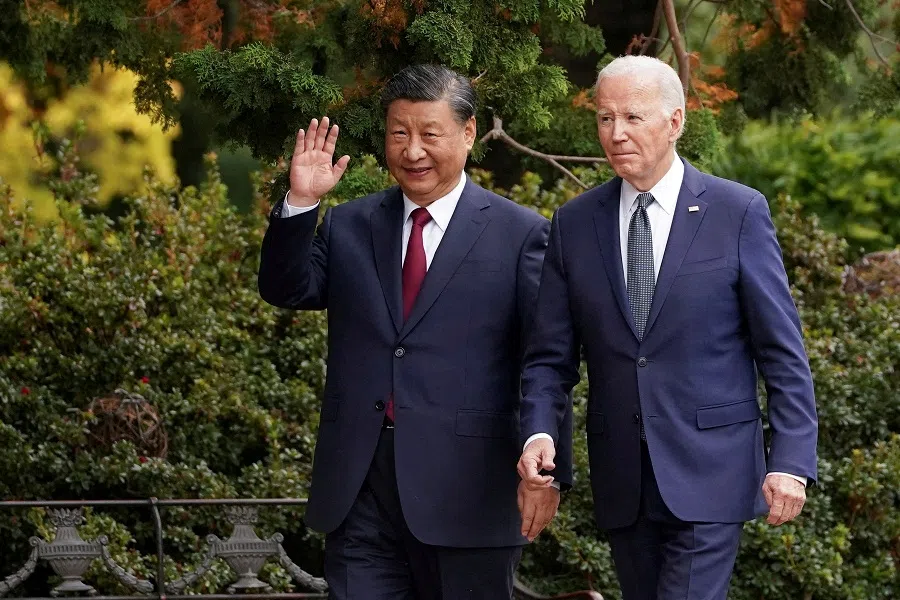
During his visit to the US, Xi also announced at a welcome dinner that China is ready to invite 50,000 young Americans to China for exchange and study programmes in the next five years.
However, Li thinks that a significant increase in the number of American students in China in the next few years is "unrealistic", as even a return to half the level in the pre-Trump era would be a challenge.
He said that although some American students could still be interested in China now, they can sense that China's social and political environment is no longer the same and it would be hard to be unaffected by China's political and diplomatic disputes with the West over the past few years.
Li pointed out that American students are also considering their employment opportunities. He said, "If studying in China and learning Chinese does not bring them good employment opportunities, they could go back to pursue other majors or search for other study opportunities."
This article was first published in Lianhe Zaobao as "中美人文交流寒冬下 在华美国留学生数量骤减".


![[Big read] When the Arctic opens, what happens to Singapore?](https://cassette.sphdigital.com.sg/image/thinkchina/da65edebca34645c711c55e83e9877109b3c53847ebb1305573974651df1d13a)


![[Video] George Yeo: America’s deep pain — and why China won’t colonise](https://cassette.sphdigital.com.sg/image/thinkchina/15083e45d96c12390bdea6af2daf19fd9fcd875aa44a0f92796f34e3dad561cc)